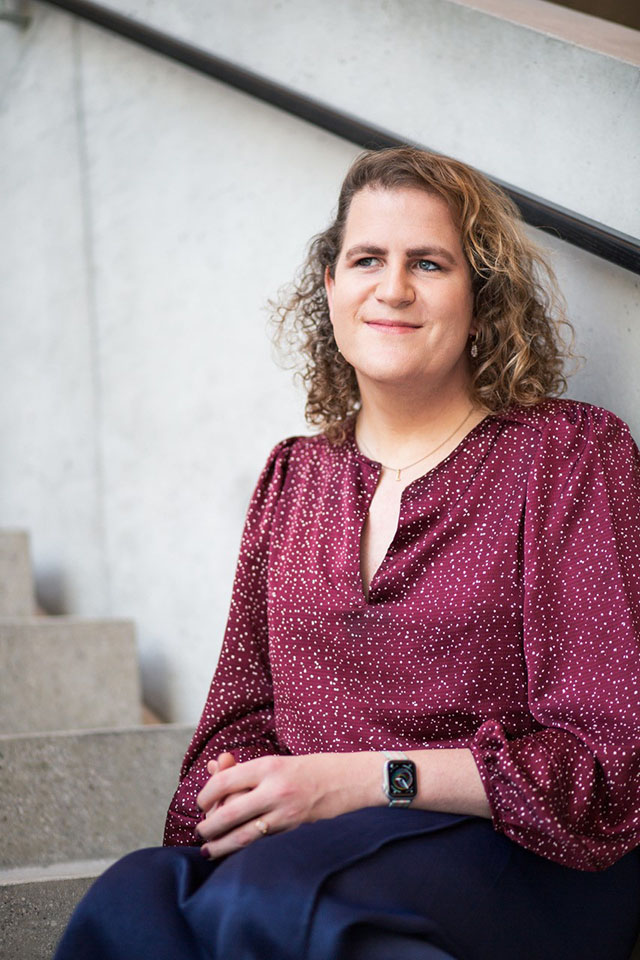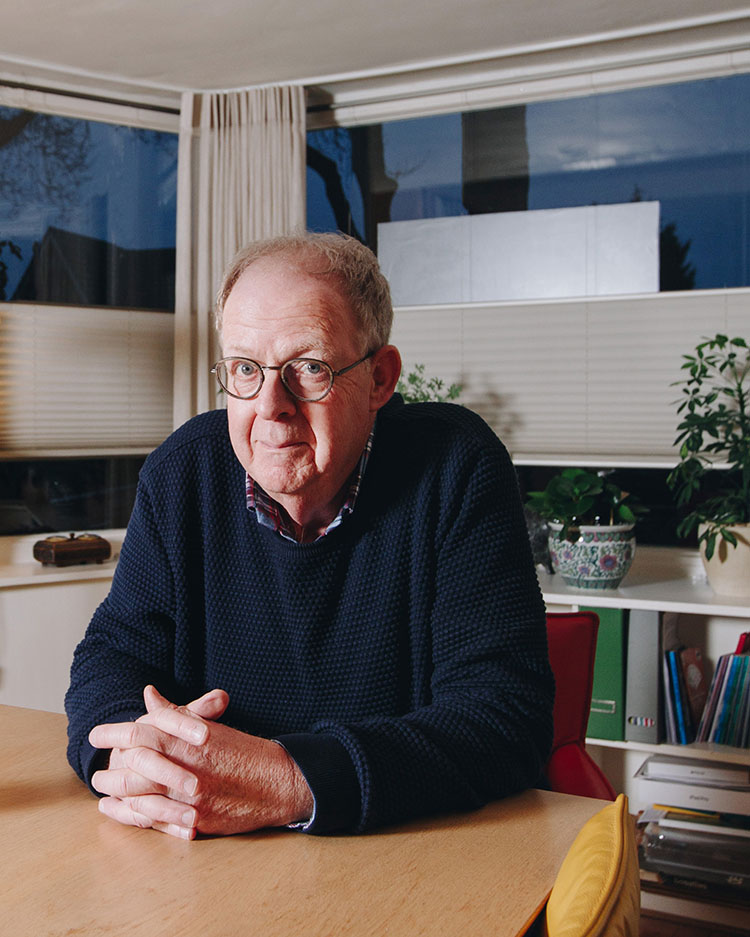Yes, students complain, but let us also listen to their suggestions
Do students' perspectives on education matter? Should educators listen to the "student voice", and if so, how? EDLAB Innovation Coordinator and former UM student Lena Gromotka reflects on the four types of student voices: the Complainer, the Critic, the Idealist, and the Suggester.
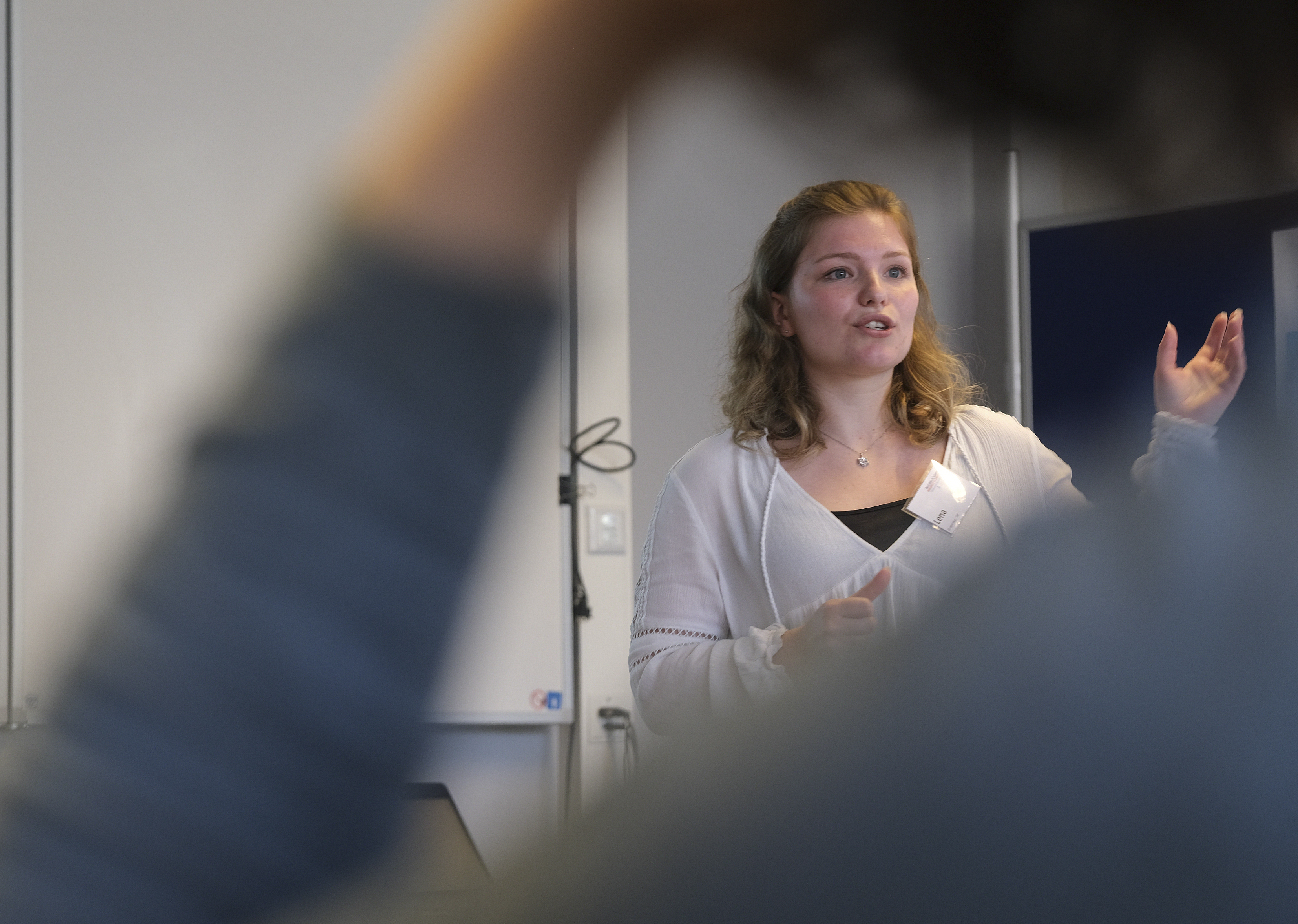
"Get engaged!"
I sometimes have this little voice in my head that whispers, "You don't have anything valuable to add to this topic". This little voice comes and goes as I go through my day. I can't remember a time when it was not there. But I learned that this voice is wrong. I learned that my unique perspective is valuable. I learned this during my time as a student at Maastricht University.
The PBL system and my tutors encouraged me to get engaged. Engaged in the tutorial lessons, engaged with the class content, and engaged beyond my study programme. I learned that my perspective as a student was valuable because my tutors asked for it. They believed I had a great perspective to contribute to education because I was the recipient of that education. I was the person who experienced education.
During my studies, I was a student representative in my programme’s Education Programme Committee. Since then, many things have changed. I became a university staff member and now work as an Innovation Coordinator at EDLAB. Much has changed, but my passion for education has remained. I assumed my perspective on education and students would change through my job. But has it?
In the first few months into my new job, I started thinking about the role of students in education. More specifically, the role of students in the quality and design of education. This article attempts to structure my thoughts and engage you in exploring the role of students in education design.
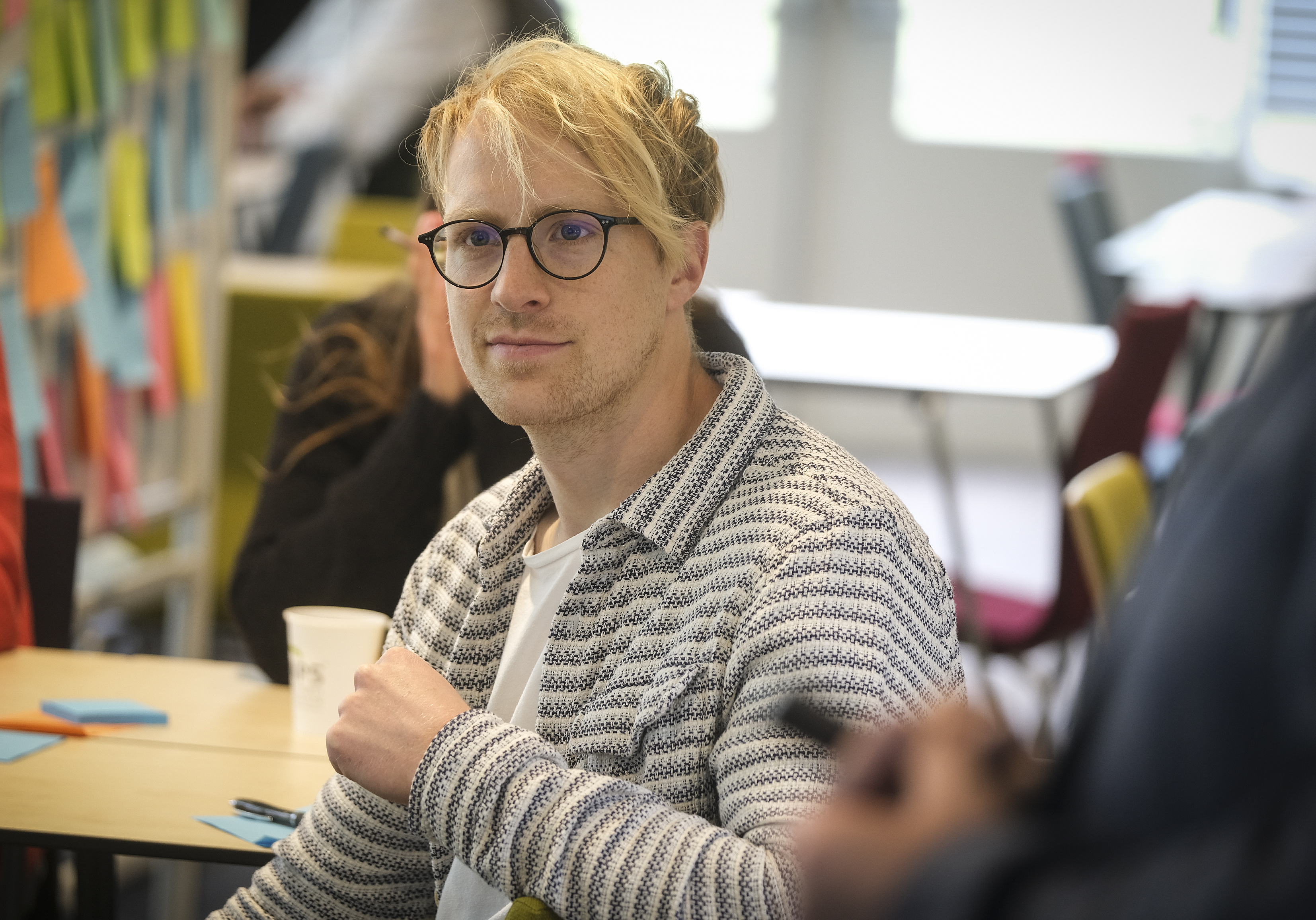
Ask students what they want to learn
As children, we grow up in a school system that positions the student as a receiver of education. We follow our primary and secondary school years in a system that is predetermined with a curriculum and gives little space for the student's input. Based on my experience, children and young adults rarely have the opportunity to think about what they want to learn and how.
In higher education, however, we support students to voice their perspectives through evaluations, student councils, and study associations. Why do we do that? Why do we ask for students' input and opinions on education? What are student voices?
Is the student voice helpful, and if so, why? In my investigation of these questions, I found many different answers. But let's start with a simple definition: What is the student voice?
As with many concepts in the education literature, there are countless definitions and implicit assumptions about the student voice. Some authors suggest that the student voice can be captured through student evaluations by asking for the student's opinions and experience of education (Blair & Valdez Noel, 2014).
Others say that there is no clear conceptualisation of the student voice in higher education. They argue that the student voice can be found in the work of teachers who ask questions about student experiences, see and understand the student perspective, reflect on implications for practice and hear or listen to ignored voices (Seale, 2009).
For me, the student voice is the mixture of active listening and honest exchange based on a critical reflection of the student experience. The student voice is a tool that students can use to add their perspective to their education.
I like to think that listening to the student voice and being open to students' views makes students become co-creators of their education. It gives students a role in the educational design structure. Listening to students makes them not only receivers but contributors to education.
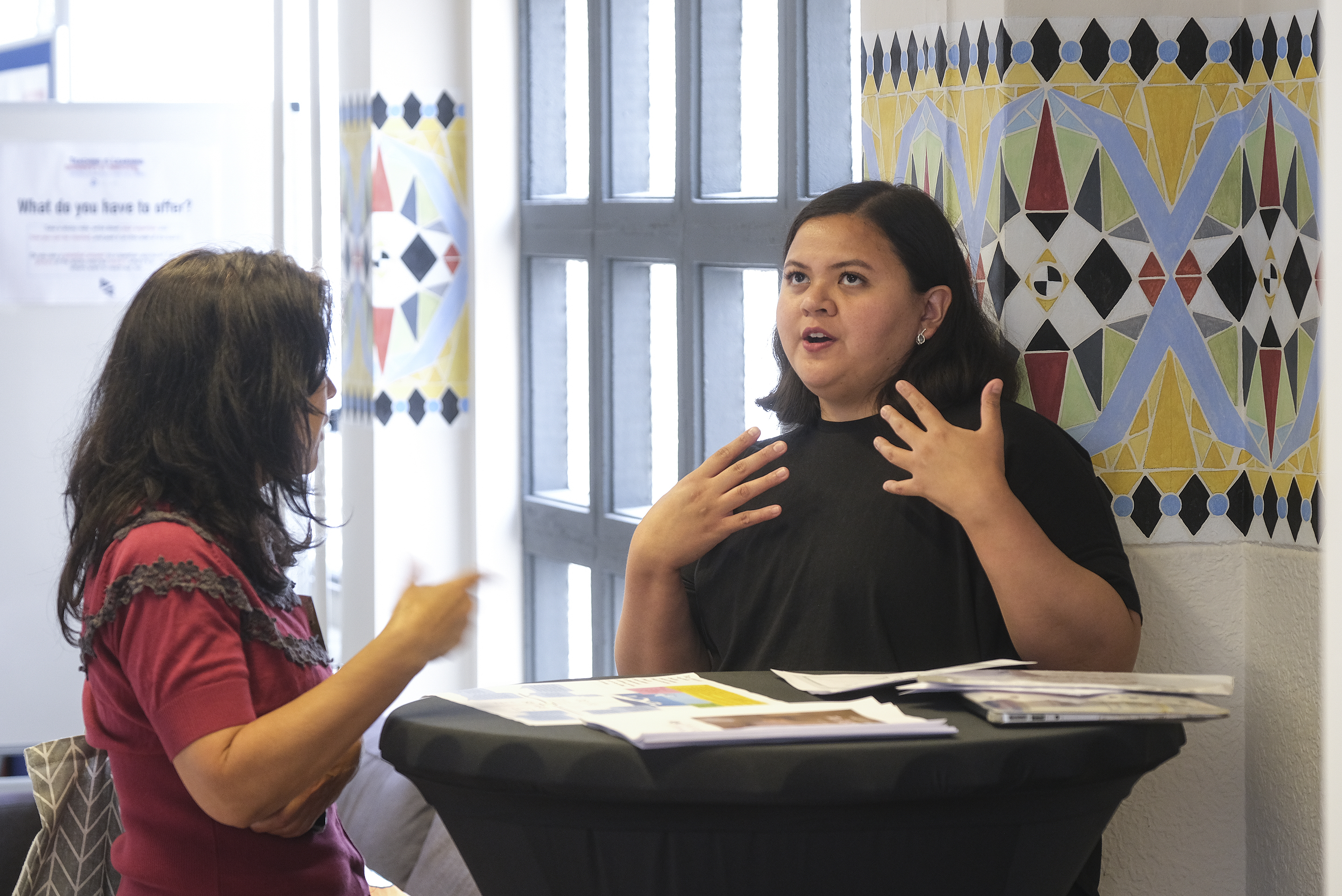
The Complainer, the Critic, the Idealist, and the Suggester
As a former student and a current staff member, I experience different student voices, which I call the Big 4. We all know them: the Complainer, the Critic, the Idealist, and the Suggester.
- The Complainer has nothing positive to say about the course or the exam.
- The Critic critically evaluates their course experience without letting their personal feelings interfere.
- The Idealist wants to work towards a better education without restricting their thinking to the reality of our day-to-day work.
- And last but not least, there is the Suggester, who not only looks at the experience critically but also gives realistic ideas on how to develop the course further.
Each student voice has its value; each student voice offers a perspective on the education we provide as a university. But not all are helpful to consider all the time. Accepting students as co-creators of education means recognising these differences between student voices, sorting through them and taking the most valuable voice seriously. Seeing students as co-creators means explaining where the co-creation ends and why.
Students as co-creators
Students may also need to experience all types of student voices. When students enter the academic world and participate in their first class, they might not have sufficient skills to reflect on their course experience, leading them to complain. Students' voices change with more understanding and awareness of the academic culture and as they develop their capacity to reflect on their behaviour.
Seeing the Big 4 as a mixture of reflection and experiences, students develop a more constructive student voice than "just" complaining. As students follow their education, they build experiences with courses, impressions with teachers and opinions about their study programme.
Educators can make use of these experiences to develop their programmes. Seeing students as co-creators of education makes the teachers and students responsible for education. It takes away the mystique of education creation and development (from the student's perspective) and gives insights into the lives of students and staff members. Acknowledging students as co-creators in our education enables us to provide some responsibility to the student and listen to the student voice.
Understandably, students do not always like this. For some, it might seem like additional work to reflect on the course AND give constructive suggestions to support the development of the course. But, as with everything in life, some people will always complain. The secret is to turn down the Complainers and to turn up the Suggesters. This does not mean ignoring complaints but setting them into context. Not taking them at face value.

Listen to the student voice
I ask myself another question: if the student voice develops over time with experience and increased reflection and awareness, how can we support that development? I haven’t found an answer to that question yet. It may be something to discuss in the following article or a Teach Meet session at EDLAB.
I want to share one final thought. The most valuable thing I learned as a student and staff member is that something is missing in our education. We are missing the exchange. The exchange on what our lives look like: as students, teachers, and educators.
Listening to the student voice is not the solution to that problem. But it is a start. In the classroom, we do not understand where the person on the other side of the table comes from. Students have (more often than not) yet to learn what life as a teacher, course coordinator, researcher, or staff member looks like. How can they if we do not talk about what is happening beyond the classroom?
Listening to students allows us to talk to them and explain why we do things or why not. It starts a conversation about education and how it can be shaped. It builds a bridge between students and staff members and helps us understand where we come from. Valuing the student voice can be one tool to achieve that.
Like my former tutor, I want to engage students to overcome this voice in their head that tells them they do not have anything valuable to contribute. My goal is to support students to move from the role of Complainers to that of Suggesters.
What do you think?
By Lena Gromotka, Junior Coordinator Education Innovation
This article is a publication of edUMinded, the Maastricht University online magazine on Teaching & Learning.
Interested in more Teaching & Learning stories?
Also read
-

Frederik Claasen, the head of policy at our partner organisation Solidaridad Network on the opportunities and obstacles facing smallholder farmers in their data ecosystems.
-
After several rocky years, Maastricht University alum Lea Vink has found her feet in Vienna. Professionally, she is taking new steps at the crossroads of aviation and organisational psychology. And on a personal level, luck has smiled on her since her transition from man to woman.
-
Frans Verhey, professor of Geriatric Psychiatry and Neuropsychiatry is proud of what the Limburg Alzheimer’s Centre has achieved and of its team, which works tirelessly to improve the quality of life of people with Alzheimer’s. “Alzheimer’s tends to be seen as a horrible, deadly brain disease that...
- in Featured
- in Human interest
- in Students
